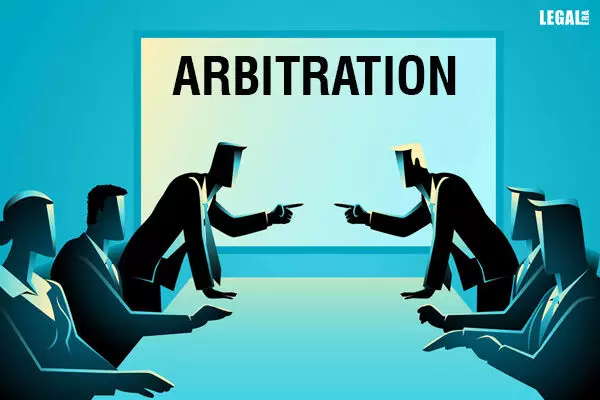- Home
- News
- Articles+
- Aerospace
- Agriculture
- Alternate Dispute Resolution
- Banking and Finance
- Bankruptcy
- Book Review
- Bribery & Corruption
- Commercial Litigation
- Competition Law
- Conference Reports
- Consumer Products
- Contract
- Corporate Governance
- Corporate Law
- Covid-19
- Cryptocurrency
- Cybersecurity
- Data Protection
- Defence
- Digital Economy
- E-commerce
- Employment Law
- Energy and Natural Resources
- Entertainment and Sports Law
- Environmental Law
- FDI
- Food and Beverage
- Health Care
- IBC Diaries
- Insurance Law
- Intellectual Property
- International Law
- Know the Law
- Labour Laws
- Litigation
- Litigation Funding
- Manufacturing
- Mergers & Acquisitions
- NFTs
- Privacy
- Private Equity
- Project Finance
- Real Estate
- Risk and Compliance
- Technology Media and Telecom
- Tributes
- Zoom In
- Take On Board
- In Focus
- Law & Policy and Regulation
- IP & Tech Era
- Viewpoint
- Arbitration & Mediation
- Tax
- Student Corner
- AI
- ESG
- Gaming
- Inclusion & Diversity
- Law Firms
- In-House
- Rankings
- E-Magazine
- Legal Era TV
- Events
- News
- Articles
- Aerospace
- Agriculture
- Alternate Dispute Resolution
- Banking and Finance
- Bankruptcy
- Book Review
- Bribery & Corruption
- Commercial Litigation
- Competition Law
- Conference Reports
- Consumer Products
- Contract
- Corporate Governance
- Corporate Law
- Covid-19
- Cryptocurrency
- Cybersecurity
- Data Protection
- Defence
- Digital Economy
- E-commerce
- Employment Law
- Energy and Natural Resources
- Entertainment and Sports Law
- Environmental Law
- FDI
- Food and Beverage
- Health Care
- IBC Diaries
- Insurance Law
- Intellectual Property
- International Law
- Know the Law
- Labour Laws
- Litigation
- Litigation Funding
- Manufacturing
- Mergers & Acquisitions
- NFTs
- Privacy
- Private Equity
- Project Finance
- Real Estate
- Risk and Compliance
- Technology Media and Telecom
- Tributes
- Zoom In
- Take On Board
- In Focus
- Law & Policy and Regulation
- IP & Tech Era
- Viewpoint
- Arbitration & Mediation
- Tax
- Student Corner
- AI
- ESG
- Gaming
- Inclusion & Diversity
- Law Firms
- In-House
- Rankings
- E-Magazine
- Legal Era TV
- Events
J&K Government Stresses Importance Of Arbitration Timelines To Prevent Financial Losses

J&K Government Stresses Importance Of Arbitration Timelines To Prevent Financial Losses
The Department of Law, Justice, and Parliamentary Affairs of the Government of Jammu and Kashmir has issued a circular emphasizing the critical importance of adhering strictly to time limits in arbitration proceedings.
The circular highlighted concerns over delays in handling arbitration cases, which have resulted in significant repercussions. It noted instances where references to the Department were made at the last moment, jeopardizing the validity of appeals against arbitral awards due to expired limitation periods.
The Department underscored that delays and inadequately drafted condonation applications risk dismissing meritorious appeals, allowing arbitral awards to become immediately enforceable without further court intervention. Citing the Arbitration and Conciliation Act, 1996, the circular emphasized the stringent time limits for various arbitration stages, including issuance of awards and submission of challenges.
Legal precedents such as 'Assam Urban Water Supply & Sewerage Board v. Subash Projects & Mktg. Ltd.' and 'Union of India v. Popular Construction Co.' underscored the criticality of these time limits, which generally cannot be extended.
Furthermore, the circular stressed that delays in filing appeals under Section 37 of the Arbitration Act, pertaining to appealable orders, should be exceptions rather than the norm. Recent court rulings, including 'Government of Maharashtra v. M/s Borse Brothers Engineers & Contractors Pvt. Ltd.,' underscored the necessity for timely actions to ensure equitable arbitration outcomes.
To address these challenges, the circular mandates departments to promptly handle arbitration notices, appoint knowledgeable officers to oversee cases, and gather necessary information for legal evaluation. The Law Department is tasked with timely decisions on challenging arbitral awards to meet specific deadlines and prevent missed opportunities.
The Department of Law, Justice, and Parliamentary Affairs has outlined precise timelines for various arbitration stages to streamline processes. These deadlines include evaluating arbitral awards, initiating challenges, and processing judicial appeals, aiming to preempt delays and procedural oversights.



